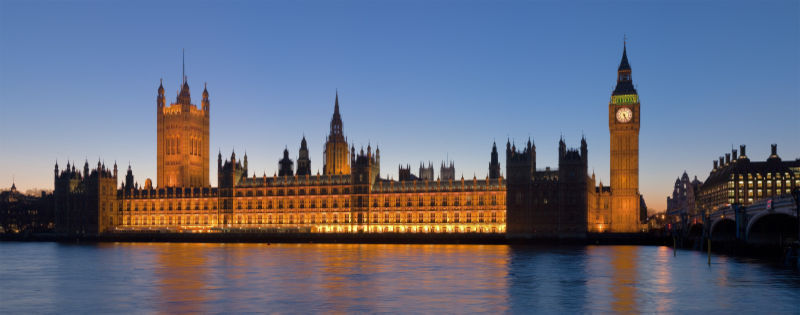|
Course Description:
Many of the great societal changes
of the past 500 years whose repercussions still reverberate throughout
today’s world initially occurred, or were centered in England. Among
these “Great Transformations” were the Protestant Reformation, the
emergence of democratic representative government, the scientific and
industrial revolutions, the development of a middle-class consumer
economy, two world-wide wars and their resulting geo-political
re-alignments across the globe, and increasingly diverse and
multi-cultural societies. Even more pointedly, these developments are
all especially relevant to America’s current role in the world. This
course will survey and explore these transformations through lectures,
discussions, and visits to sites in or near London that provide a
firsthand acquaintance with these events and a glimpse into their
implications. Our overall purpose will be to relate these major
shifts in society to the way we now live our lives.
Why Study these Great
Transformations?
It has become commonplace to
observe that America has entered the 21st century
as the world’s sole military and major economic super-power. Some
observers see the U.S. as having
taken on the imperial mantle
of the former British Empire. It is this situation which provides the
most compelling rationale for this course. In this
context of American hegemony it is increasingly important to understand the “Great Transformations”
that have shaped our western consciousness and the ways in which we now see the world. Our
underlying goals will be to more fully appreciate these
socio-cultural developments,
to comprehend their complex inter-relationships, to understand the
cumulative matrix they have
formed as we Americans concern themselves with our involvement on the
world stage, and perhaps to better recognize the intersections of our
own biographies and this
larger history.
Course materials will
include short excerpts from a wide variety of sources which may
include Jacob Bronowski, The Ascent of Man; Michael A. Toth,
“Introduction to the Four Transformations;” Peter Berger, The
Sacred Canopy; Christopher Haigh, English Reformations;
Jeffrey Goldsworthy, The Sovereignty of Parliament; James
Gleick, Isaac Newton; Richard Hamblyn, The Invention of
Clouds; Gerhard E. Lenski, Human Societies; Leon Uris,
Trinity; Karl Marx, The Communist Manifesto; A. N. Wilson,
The Victorians; James Morris, Pax Britannica; Charles
Darwin, Origin of Species, The Descent of Man; Michael
Harrington, The Politics at God’s Funeral; Barbara Tuchman,
The Guns of August; Paul Fussell, The Great War and Modern
Memory; Eric Hobsbawn, The Age of Extremes; David Fromkin,
A Peace to End All Peace; J. M. Winter, The World After
Versailles; Daniel Patrick Moyniham, Pandemonium; “William
Pfaff, “Reflections on Nationalism;” Niall
Ferguson, Empire.
This class will utilize video
materials that illuminate some of the significant events associated
with these transformations. Lectures and discussions will provide
context and background to the historical developments and more
specific events.
Students will be expected to attend
and participate in every class session, maintain a course-long journal
with responses to weekly questions, prompts, and field trip
excursions, and explore in greater depth a self-selected topic of
personal interest that relates aspects of one or more of these
transformations to contemporary events.
Basic Course Outline:
(the course will include
both weekly class sessions and outside excursions)
Week 1:
Great Social Transformations: disruptions of continuity.
Transforming Changes over the past 500 years & their Locus in
London/England.
Week 2: The Protestant
Reformation: new varieties of belief.
The European and English Reformations
Week 3: The
Emergence of Democratic Representative Government: who speaks for
me?
The
Emergence of English Parliamentary Government.
Week 4: The
Scientific Revolution: how should we trust experience?
Early English Philosophers and
Scientists (e.g. Bacon, Newton)
Week 5: The
Industrial Revolution: making a living, making a life.
Shaping Events: Acts of
Enclosure, the Steam Engine, the Factory.
Week 6: The
Victorian Era: appropriate behaviors, both individual and societal.
Middle Class Morals and Social
Reforms; Empire and Colonialism
Week 7:
Darwin and Evolution: how did it all get this way?
Major Paradigm
Shifts—Explaining Human Life and the Social Sciences
Week 8:
World-Altering War - 1914-1945: diplomacy by other means?
The Technological, Political, and Social Impacts of the Great
Conflagration.
Week 9: The
Making of the Middle East: shaping the conflicts to come.
Unanticipated
Outcomes of the
Great War and Subsequent Events
Week 10: The
Decline of Empire: giving birth to a new world order?
Parallels and Differences
Between the Rise and Decline of the British Empire
and America’s
Current Place in World Affairs.
A Note about Class Excursions:
London offers many fascinating
sites to visit: the
British
Museum (which has a special section devoted to the Enlightenment
period),
St. Pa ul’s Cathedral (a major center of the Church of England),
the
Houses of Parliament (center of representative government), the
Imperial War
Museum (which has an excellent time-line historical
display of the war years from 1914-1945), the
Museum of Science and
Industry, the
Museum of London (which features a sequence of historical eras),
and
Down House (the country home where Darwin wrote his
ground-breaking works). We also hope to include an excursion to
Iron Bridge Gorge and its
nine museums which portray many of the changes associated with the
Industrial Revolution. Reactions to and reflections on these
excursions will be part of students’ journaling activities. ul’s Cathedral (a major center of the Church of England),
the
Houses of Parliament (center of representative government), the
Imperial War
Museum (which has an excellent time-line historical
display of the war years from 1914-1945), the
Museum of Science and
Industry, the
Museum of London (which features a sequence of historical eras),
and
Down House (the country home where Darwin wrote his
ground-breaking works). We also hope to include an excursion to
Iron Bridge Gorge and its
nine museums which portray many of the changes associated with the
Industrial Revolution. Reactions to and reflections on these
excursions will be part of students’ journaling activities.
Some Recommended Advance
Surfing:
If you would like to do
some advance reading here are several excellent web sites:
the English Reformation at
http://wsu.edu/~dee/reform/england.htm
the Industrial Revolution at
http://en.wikipedia.org/wiki/Industrial_Revolution
the Darwinian Revolution at
http://www.meta-library.net/evolution/revo-body.html
the Victorian Era at
http://www.victorianweb.org
|





